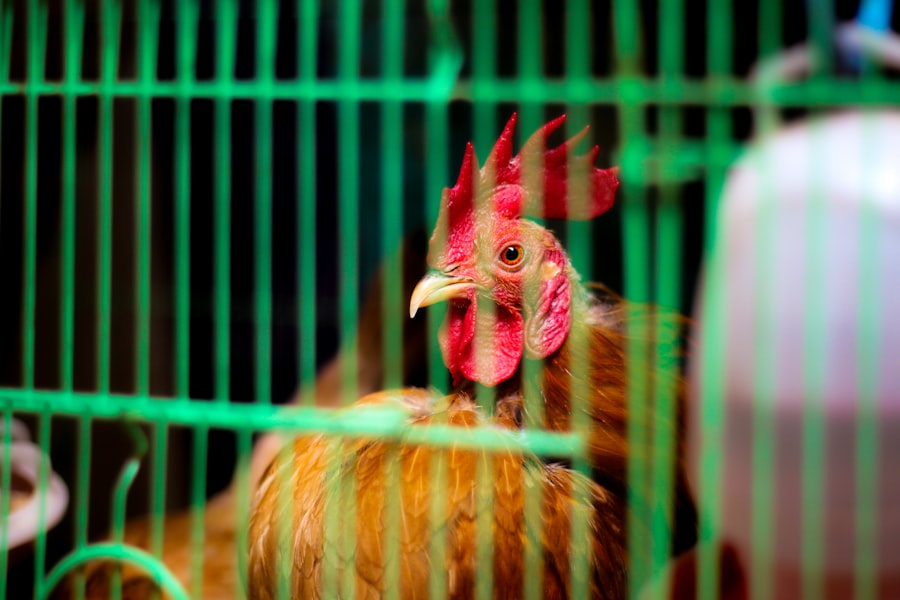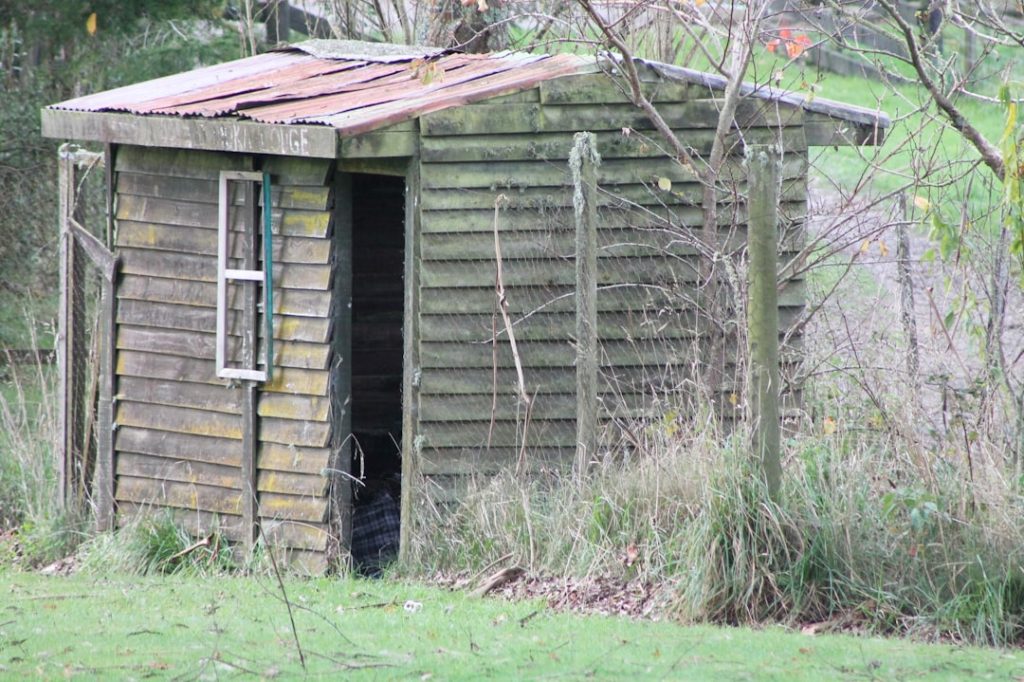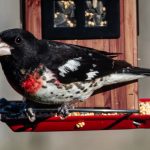Creating a suitable living environment for pets is crucial for their health and happiness. This involves providing a comfortable sleeping area where they can rest and feel secure. When selecting a bed or resting spot, it’s essential to consider the pet’s size and breed.
Larger animals typically require more spacious beds, while smaller pets may prefer cozier, enclosed spaces. In addition to a comfortable sleeping area, pets benefit from having a designated retreat space. This can be a quiet corner of the home or a crate where they can go when they need solitude.
Such spaces offer pets a refuge from household activity and can help reduce stress and anxiety. Providing a safe, quiet area for pets to retreat to promotes their sense of security and overall well-being.
Table of Contents
- 1 Providing Nutritious Food and Fresh Water
- 2 Ensuring Ample Space for Roaming and Exercise
- 3 Offering Enrichment Activities
- 4 Maintaining a Clean and Safe Environment
- 5 Monitoring Health and Wellness
- 6 Providing Social Interaction and Companionship
- 7 FAQs
- 7.1 What are some signs that my chickens are happy?
- 7.2 How can I provide a comfortable living environment for my chickens?
- 7.3 What should I feed my chickens to keep them happy and healthy?
- 7.4 How can I keep my chickens safe from predators?
- 7.5 What are some enrichment activities for chickens?
- 7.6 How can I keep my chickens healthy and prevent illness?
Key Takeaways
- Create a comfortable living space by providing cozy bedding and hiding spots for your pet.
- Ensure nutritious food and fresh water are always available for your pet’s health and well-being.
- Provide ample space for roaming and exercise to keep your pet physically and mentally stimulated.
- Offer enrichment activities such as toys, puzzles, and interactive games to keep your pet engaged and entertained.
- Maintain a clean and safe environment by regularly cleaning and disinfecting your pet’s living area.
Providing Nutritious Food and Fresh Water
Nutritious Food for a Healthy Pet
Choosing the right pet food requires research and consultation with a veterinarian to determine the best diet for your pet. This ensures that your pet receives the necessary nutrients for optimal health.
Fresh Water for Optimal Hydration
In addition to providing nutritious food, it’s essential to ensure that your pet always has access to fresh water. This is particularly important for pets prone to dehydration, such as dogs and cats.
Monitoring Eating and Drinking Habits
Monitoring your pet’s eating and drinking habits is vital to ensure they consume an adequate amount of food and water. This may involve tracking their daily intake and making adjustments as needed. Be mindful of any changes in your pet’s appetite or water consumption, as this could indicate an underlying health issue that requires attention.
Ensuring Ample Space for Roaming and Exercise

Ensuring ample space for your pet to roam and exercise is essential for their physical and mental well-being. This may require providing a designated area for your pet to play and exercise, such as a backyard or a spacious indoor area. It’s important to consider the size and breed of your pet when determining the appropriate amount of space they need for exercise.
For example, larger breeds may require more space to run and play, while smaller breeds may be content with a smaller area. In addition to providing ample space for exercise, it’s important to engage in regular physical activity with your pet. This could include taking them for walks, playing fetch, or engaging in other forms of interactive play.
Regular exercise not only helps keep your pet physically fit, but it also provides mental stimulation and helps prevent boredom and destructive behavior.
Offering Enrichment Activities
Offering enrichment activities is essential for keeping your pet mentally stimulated and engaged. This could include providing toys, puzzles, and interactive games that encourage your pet to use their natural instincts and problem-solving skills. It’s important to choose toys and activities that are appropriate for your pet’s size, breed, and age, and to rotate them regularly to prevent boredom.
In addition to providing toys and interactive games, it’s important to engage in regular training sessions with your pet. This not only helps strengthen the bond between you and your pet, but it also provides mental stimulation and helps keep your pet’s mind sharp. Training sessions can include basic obedience training, agility training, or even teaching your pet new tricks.
Maintaining a Clean and Safe Environment
Maintaining a clean and safe environment is essential for your pet’s health and well-being. This includes regular cleaning and disinfecting of your pet’s living space, as well as removing any potential hazards or toxins that could pose a threat to your pet. It’s important to keep your pet’s living space free of clutter and debris, and to regularly clean their bedding, toys, and food and water dishes.
In addition to regular cleaning, it’s important to be mindful of any potential hazards in your home that could pose a threat to your pet. This could include toxic plants, household chemicals, or small objects that could be swallowed. It’s important to take steps to remove or secure these hazards to prevent accidents or injuries.
Monitoring Health and Wellness

Proactive Pet Care
It’s essential to be proactive about your pet’s health and seek medical attention if you notice any concerning symptoms. Early detection and treatment can significantly improve your pet’s quality of life and prevent more severe health issues from developing.
Preventative Care Essentials
In addition to regular veterinary care, it’s vital to maintain preventative care measures such as flea and tick prevention, dental care, and grooming. These practices can help prevent common health issues and keep your pet feeling their best.
Maintaining a Healthy Lifestyle
It’s also crucial to be mindful of your pet’s weight and diet, as obesity can lead to a variety of health issues. By providing a balanced diet and encouraging regular exercise, you can help your pet maintain a healthy lifestyle and reduce the risk of obesity-related health problems.
Providing social interaction and companionship is essential for your pet’s emotional well-being. This includes spending quality time with your pet, engaging in interactive play, and providing opportunities for socialization with other pets and people. Pets thrive on companionship and interaction, so it’s important to make time for them in your daily routine.
In addition to spending quality time with your pet, it’s important to provide opportunities for socialization with other pets and people. This could include taking your dog to the dog park, enrolling them in obedience classes, or arranging playdates with other pets. For cats, providing opportunities for interactive play and environmental enrichment can help prevent boredom and provide mental stimulation.
In conclusion, creating a comfortable living space, providing nutritious food and fresh water, ensuring ample space for roaming and exercise, offering enrichment activities, maintaining a clean and safe environment, monitoring health and wellness, and providing social interaction and companionship are all essential components of responsible pet ownership. By prioritizing these aspects of care, you can help ensure that your pet lives a happy, healthy, and fulfilling life as a beloved member of your family.
If you’re looking for more tips on how to keep your chickens happy, you might want to check out this article on creating the perfect chicken coop and nest box here. It’s important to provide your chickens with a comfortable and safe environment, and having a well-designed coop and nest box is essential for their well-being.
FAQs
What are some signs that my chickens are happy?
Some signs that your chickens are happy include active foraging, socializing with other chickens, and laying eggs regularly. They may also exhibit behaviors such as dust bathing and sunbathing.
How can I provide a comfortable living environment for my chickens?
To provide a comfortable living environment for your chickens, make sure they have access to a clean and spacious coop with proper ventilation. Provide nesting boxes for laying eggs, perches for roosting, and access to a secure outdoor area for foraging.
What should I feed my chickens to keep them happy and healthy?
A balanced diet for chickens includes a mix of commercial chicken feed, grains, fruits, vegetables, and access to insects and other protein sources. Make sure they have access to clean water at all times.
How can I keep my chickens safe from predators?
To keep your chickens safe from predators, secure their coop with sturdy fencing and locks. Consider using motion-activated lights or alarms to deter nocturnal predators. Supervise free-range time and provide a safe shelter for them to retreat to.
What are some enrichment activities for chickens?
Enrichment activities for chickens include providing them with objects to peck at, such as hanging vegetables or a chicken-friendly piñata. You can also scatter treats for them to forage, or provide them with a dust bathing area.
How can I keep my chickens healthy and prevent illness?
To keep your chickens healthy, provide them with regular access to fresh air and sunlight, and keep their living environment clean. Monitor their behavior and appearance for signs of illness, and consult a veterinarian if you have concerns. Regular vaccinations and parasite control can also help prevent illness.
Meet Walter, the feathered-friend fanatic of Florida! Nestled in the sunshine state, Walter struts through life with his feathered companions, clucking his way to happiness. With a coop that’s fancier than a five-star hotel, he’s the Don Juan of the chicken world. When he’s not teaching his hens to do the cha-cha, you’ll find him in a heated debate with his prized rooster, Sir Clucks-a-Lot. Walter’s poultry passion is no yolk; he’s the sunny-side-up guy you never knew you needed in your flock of friends!







